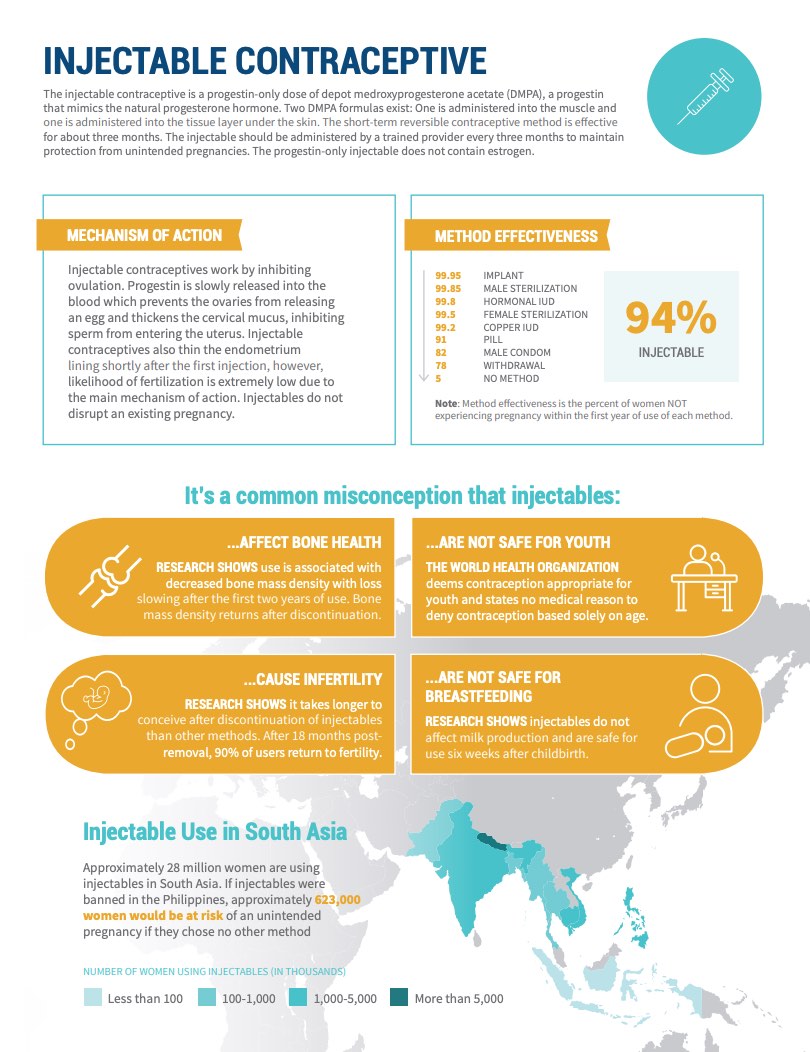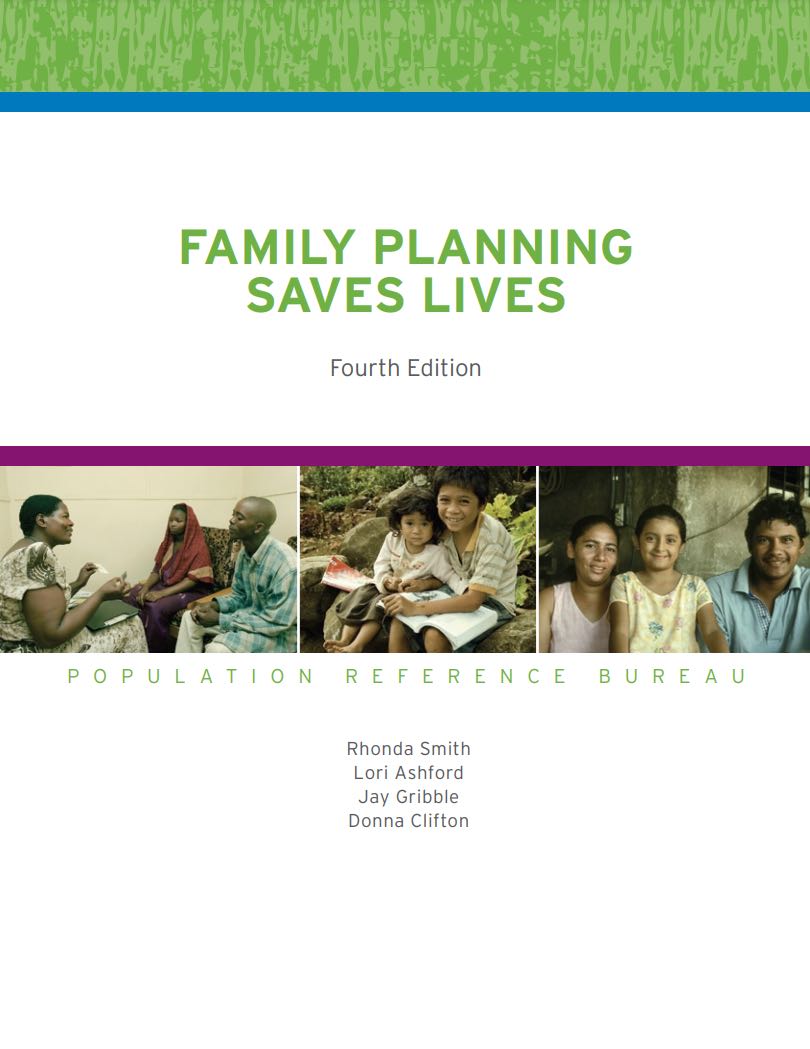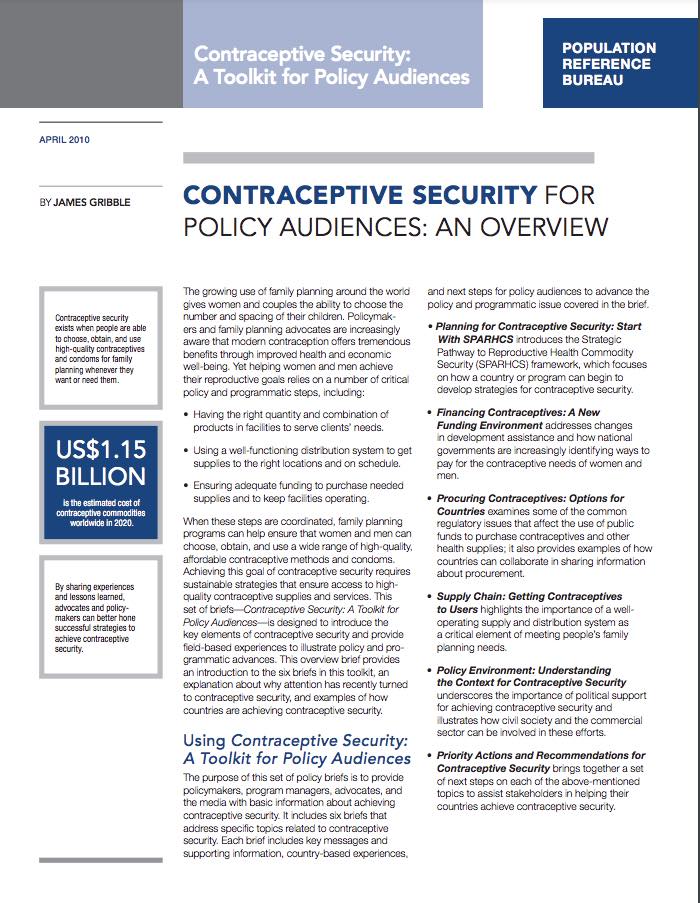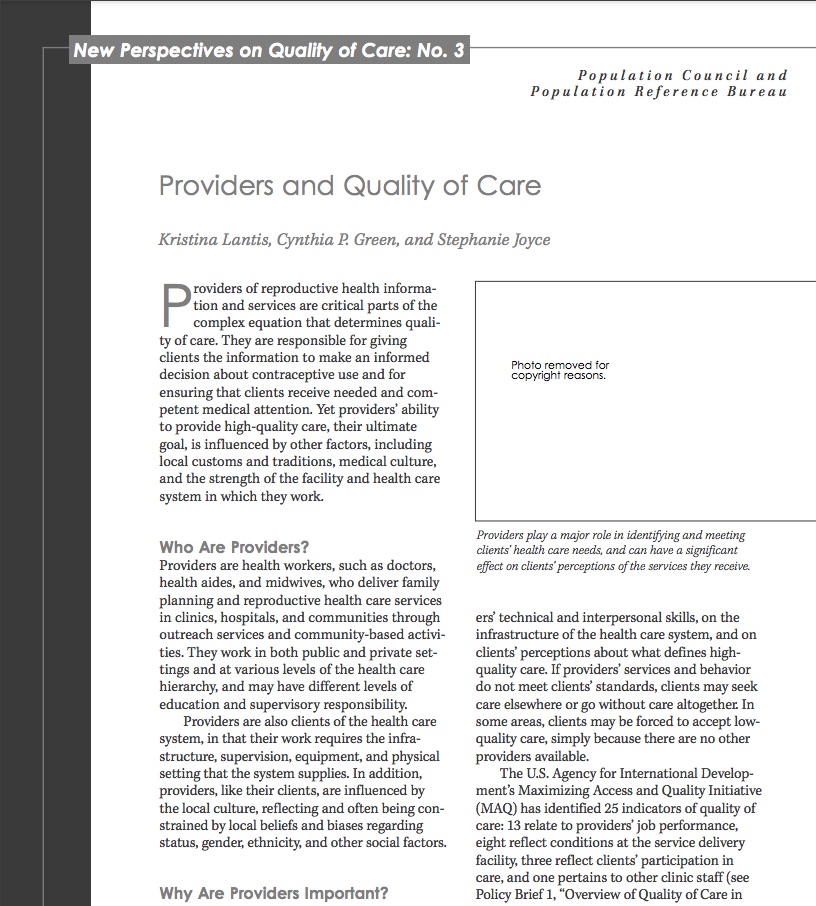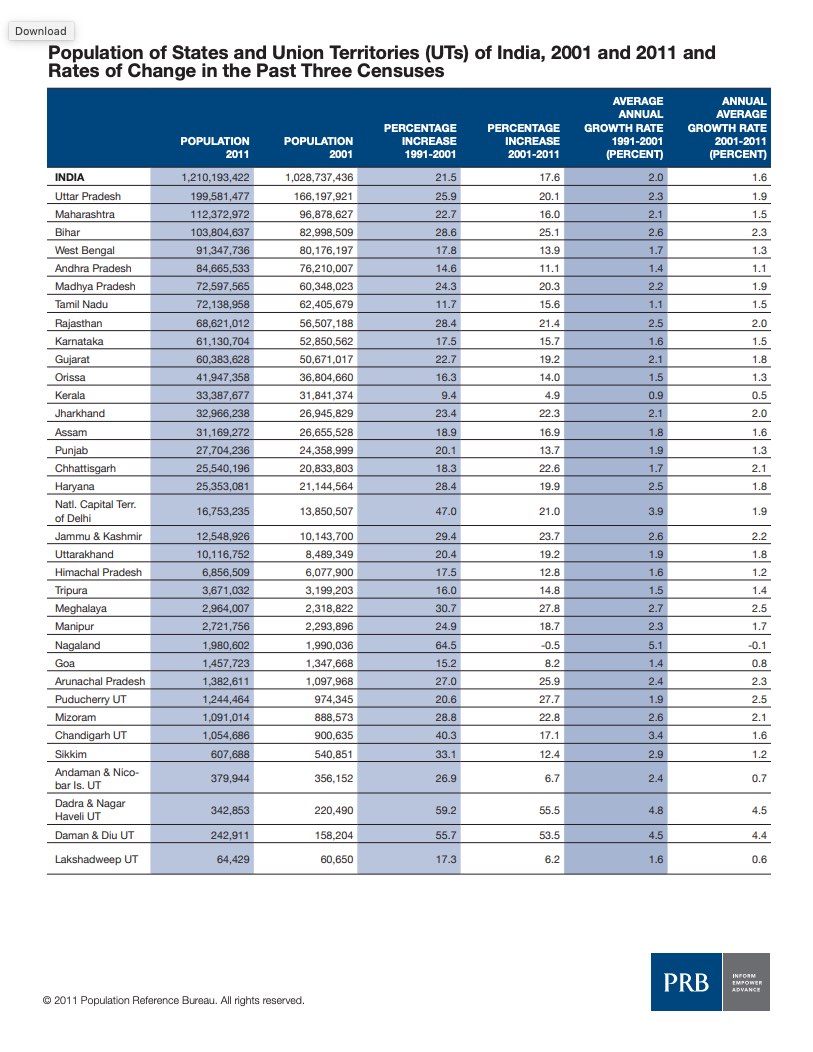Project: Empowering Evidence-Driven Advocacy
Infographic. Injectable Contraceptive
The injectable contraceptive is a progestin-only dose of depot medroxyprogesterone acetate (DMPA), a progestin that mimics the natural progesterone hormone. Two DMPA formulas exist: One is administered into the muscle and one is administered into the tissue layer under the skin. The short-term reversible contraceptive method is effective for about three months. The injectable should be administered by a trained provider every three months to maintain protection from unintended pregnancies. The progestin-only injectable does not contain estrogen.

